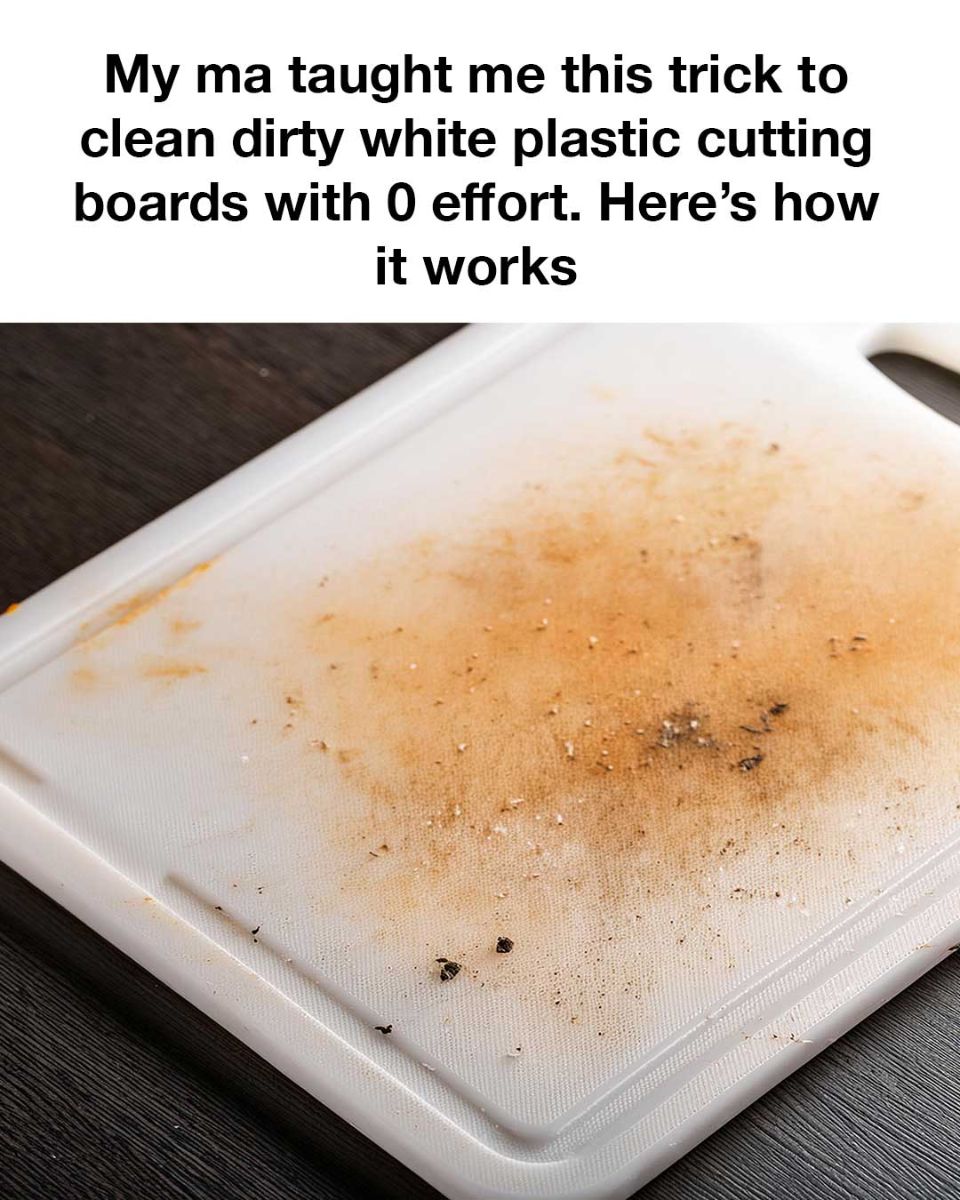Baking soda: A natural cleaning agent that helps lift stains and deodorizes.
Hydrogen peroxide: An antiseptic that kills bacteria and removes stains without harsh chemicals.
Dish soap: Cuts through grease and food residue.
Step-by-Step Guide to Effortlessly Clean Your Cutting Board
Gather Your Supplies: Start by assembling your baking soda, hydrogen peroxide, and dish soap. Make sure your cutting board is dry before you begin.
Sprinkle Baking Soda: Lay your cutting board flat on a surface. Generously sprinkle baking soda all over the surface of the cutting board. Baking soda is mildly abrasive, which helps scrub away stains, and it also has deodorizing properties that neutralize odors.
Add Hydrogen Peroxide: Pour a small amount of hydrogen peroxide over the baking soda. The liquid should be enough to create a paste-like consistency when mixed with the baking soda. Hydrogen peroxide is a natural bleaching agent and will help lift any deep stains from the board.
Add a Few Drops of Dish Soap: To enhance the cleaning power, add a few drops of dish soap to the mixture. Dish soap helps to cut through any grease or oil residue that may be on the board.

Let It Sit: This is the best part: no scrubbing required! Simply let the mixture sit on the cutting board for 10-15 minutes. This gives the ingredients time to break down stains, kill bacteria, and remove odors.
Rinse Thoroughly: After the mixture has sat for a while, rinse the cutting board thoroughly with warm water. Use a sponge or cloth to wipe away any remaining paste. You’ll notice that the stains have significantly faded, and any odors have disappeared.
Dry Completely: Once rinsed, dry the cutting board with a clean towel or let it air dry completely before storing it. Drying your cutting board thoroughly prevents any bacteria or mold from growing.
Why This Method Works So Well
Baking Soda: Acts as a mild abrasive to scrub away stains and has deodorizing properties to remove lingering smells.
Hydrogen Peroxide: A natural bleaching agent that safely whitens surfaces and eliminates bacteria without harsh chemicals.
Dish Soap: Breaks down grease and food residues, making the cleaning process more effective.
This combination of ingredients creates a powerful cleaning solution that lifts stains, kills germs, and deodorizes all in one go, with minimal effort required.
Additional Tips for Keeping Your Cutting Board Clean
Clean After Each Use: The best way to prevent stains and odors is to clean your cutting board immediately after use. A quick rinse with hot water and soap can prevent food residues from setting in.
Avoid Harsh Scrubbing: Using abrasive pads or harsh scrubbing tools can damage the surface of your cutting board, making it more porous and prone to stains. Stick to gentle sponges or cloths.
Sanitize Regularly: In addition to the cleaning trick above, it’s a good idea to sanitize your cutting board regularly. A simple way to do this is to rub it with a cut lemon or spray it with vinegar. Both methods naturally disinfect and keep your board hygienic.

Avoid the Dishwasher: While it may be tempting to toss your plastic cutting board in the dishwasher, the high heat can cause it to warp over time. It’s best to hand wash your cutting board to maintain its shape and longevity.
Keeping your white plastic cutting boards clean doesn’t have to be a chore. With this simple, effective method my ma taught me, you can remove stains, eliminate odors, and ensure your cutting boards are always hygienic—all with minimal effort. The next time you notice your cutting board looking a little worse for wear, try this trick, and enjoy the results of a fresh, clean cutting board every time.

